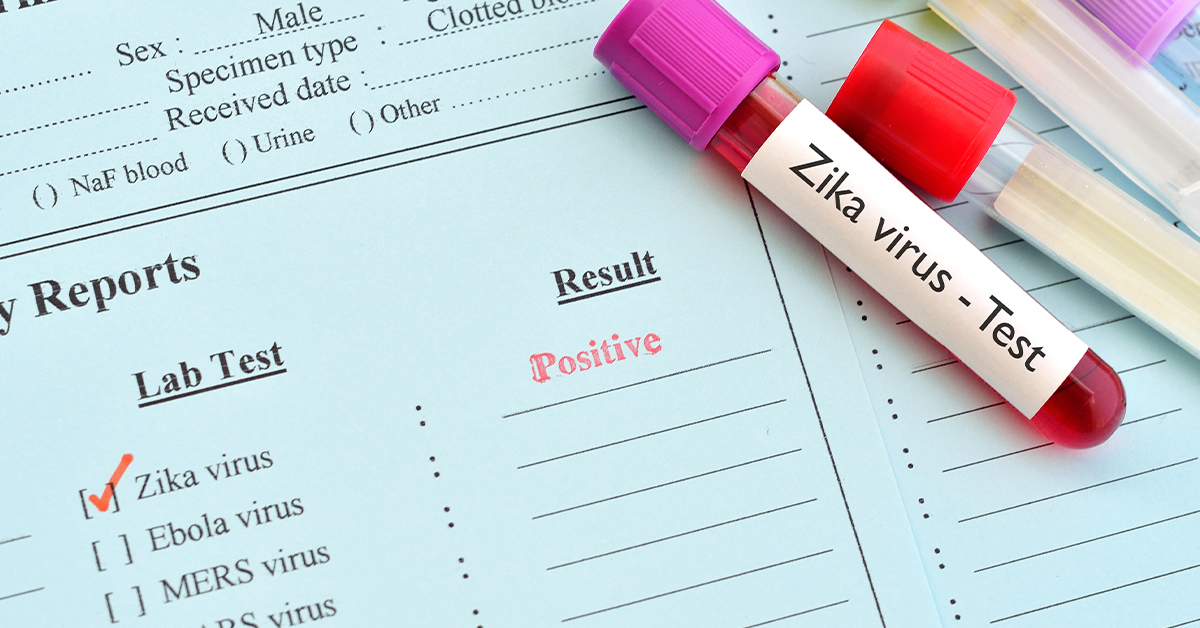While mosquito-borne viruses are increasingly common, there is one that has been on the decline in recent years. The Zika virus is spread through the bite of the aedes aegypti mosquito – which is also responsible for the transmission of dengue virus, yellow fever, and chikungunya.
Even though there are no current outbreaks, the Zika virus has by no means disappeared. And some individuals should remain particularly vigilant, especially when traveling to regions where there are or have been active cases.
Is the Zika Virus Still Around?
While the Zika virus has not grabbed many headlines lately, the virus is still circulating. There were only around 30,000 cases of Zika in 2023, mainly in Central and South American countries – including Belize, Bolivia, Brazil, Columbia, Paraguay, and Venezuela.
If you plan to travel to this region, protect yourself from mosquito bites and be aware of Zika virus symptoms. Most Zika cases are asymptomatic, but some individuals may experience headache, muscle and joint pain, rash, fever, and conjunctivitis – typically appearing several days to two weeks after exposure. Zika virus can be confirmed with PCR lab tests.
What Happens If You Get Zika While Pregnant?
One group that needs to be particularly vigilant about Zika virus threats is anyone who is pregnant, plans to become pregnant, or who may impregnate a partner.
The virus can be transmitted through sex or from a pregnant person to a fetus. Zika virus carries an increased risk of miscarriage, premature labor, low birth weight, and severe birth defects including brain damage and microcephaly.
Is Zika Virus Curable?
At present, there is no cure for the Zika virus. Treatment consists of supportive care to ease symptoms. Fortunately, most cases are asymptomatic and even those that have symptoms typically resolve on their own within 7-10 days.
A small percentage of those infected with the Zika virus may experience long-term issues, including Guillain-Barre syndrome (an autoimmune condition that attacks the lining of nerve cells). Guillain-Barre can result in widespread weakness and paralysis that spreads from the legs upward and may affect the patient’s ability to breathe. Contracting Zika virus increases the risk of Guillain-Barre by 20 times. While rare, it is a possible Zika complication that cannot be overlooked or ignored.
Where Is Zika Virus Found?
While recent cases were reported only in Central and South America, Zika has been found in dozens of countries (including the United States). Texas and Florida experienced outbreaks as recently as 2017… but no additional U.S. cases have been recorded since then.
If you plan to travel to a tropical or subtropical location where Zika-carrying mosquitoes might be active, consult the CDC’s Zika range map to determine if your destination is subject to a Zika advisory.
East End Tick & Mosquito Control® Provides Year-Round Protection from Mosquito Threats
While Zika virus prevention isn’t a significant concern for East End residents who are staying at home this winter, there are numerous mosquito-borne diseases you need to protect yourselves from any time the temperature rises above 50 degrees and mosquitoes become active. If you see mosquitoes on or around your property, contact us online for a free estimate, or give us a call at (631) 324-9700 in East Hampton; (631) 287-9700 in Southampton, or (631) 765-9700 in Southold. We have over a quarter century of experience in eliminating mosquito and tick threats on Long Island and look forward to protecting you and your family.


